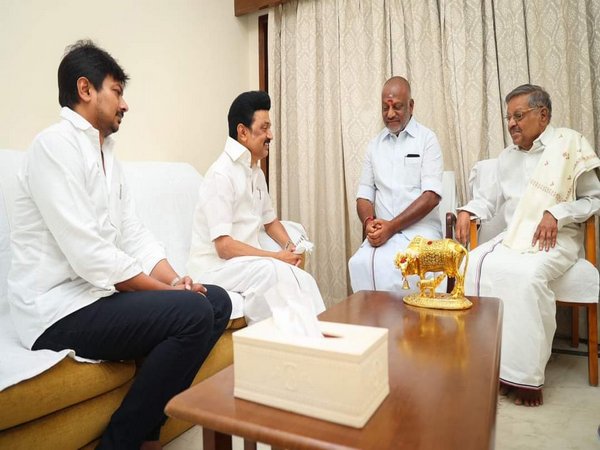As Tamil Nadu gears up for a high-stakes 2026 Assembly election, OPS’s moves hint at shifting alliances and a reshaping of old rivalries. Will Stalin open the door to his old foe? Or is this just high-stakes posturing?
BY PC Bureau
Chennai, August 1, 2025 — In a move that may reshape the political contours of Tamil Nadu ahead of the 2026 Assembly elections, former Chief Minister O. Panneerselvam (OPS) has announced his exit from the BJP-led National Democratic Alliance. Though not unexpected, the timing—and the optics that followed—have set off a flurry of speculation about his future, particularly the possibility of a realignment with Chief Minister M.K. Stalin’s DMK.
OPS’s departure comes after a long period of marginalisation within the AIADMK and a growing distance from the BJP. The final straw appears to have been his exclusion from Prime Minister Narendra Modi’s recent Tamil Nadu visit—an omission that underscored his waning relevance in the NDA coalition. Once the face of AIADMK’s compromise and continuity, OPS has struggled for political space after the party’s split and his eventual expulsion by the Edappadi K. Palaniswami (EPS) faction.
READ: From Cooks to Cleaners: Nitish Doubles Pay in Pre-Poll Push
But what has truly turned heads is his quiet but deliberate proximity to DMK supremo Stalin. On Thursday, OPS met the Chief Minister twice—once during a morning walk and again later at his official residence. While the meetings were described as “courtesy calls,” the political messaging was unmistakable. OPS did not deny that his faction—the AIADMK Cadres Rights Retrieval Committee—was exploring a “new path.” His exact words: “Anything can happen in politics.”
2nd meeting – OPS meets TN CM MK Stalin again at his residence pic.twitter.com/ZDXPRMRoQt
— Mahalingam Ponnusamy (@mahajournalist) July 31, 2025
Could that path lead him into the DMK camp?
Historically, such a shift would be unthinkable. OPS was groomed in Jayalalithaa’s fiercely anti-DMK politics, and his rise was built on the foundation of that rivalry. But today’s Tamil Nadu politics is more transactional than ideological, especially for leaders sidelined by their own parties. OPS, despite his diminished base, still commands symbolic value—especially among Thevar voters, a bloc both the DMK and AIADMK have sought to court.
For the DMK, bringing OPS into the fold could serve multiple purposes. It would deepen the crisis in AIADMK, expose fissures in the NDA at the state level, and send a message that Stalin is open to inclusive politics—even with former rivals. However, such a move would not be without risk. DMK cadres remain wary of accepting a figure once seen as the face of their most entrenched opposition. Stalin, known for his cautious pragmatism, is unlikely to rush into a formal alliance without weighing the long-term implications.
READ: Finally, SC to Hear Biren Singh Tape Case on August 4
OPS’s best chance at political survival may now rest with the DMK. His AIADMK faction lacks the organisational strength or voter base to go it alone. Aligning with the ruling party offers him not just relevance, but possibly rehabilitation.
Whether Stalin will open that door remains to be seen. But for now, OPS has made the first move—breaking free of the BJP-AIADMK bloc and making it clear that his political chapter is far from over.














